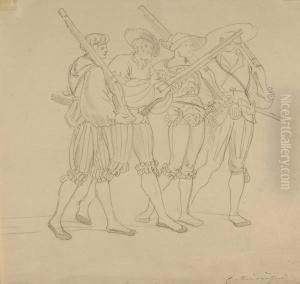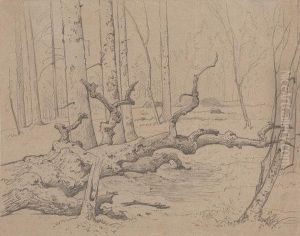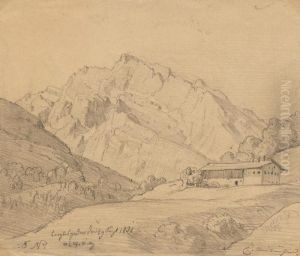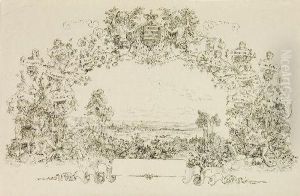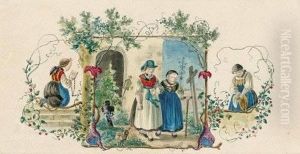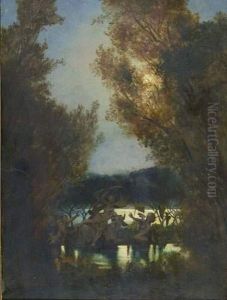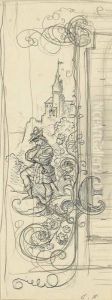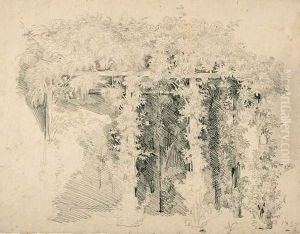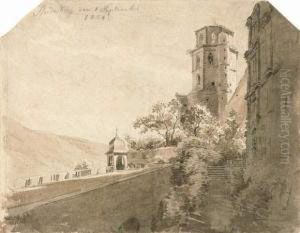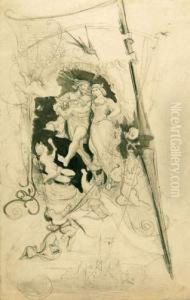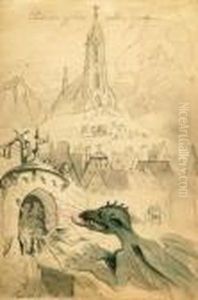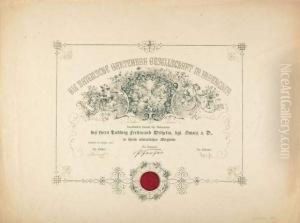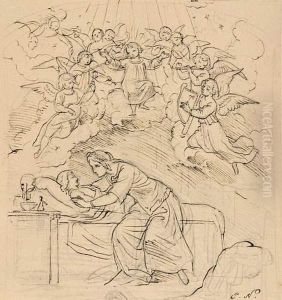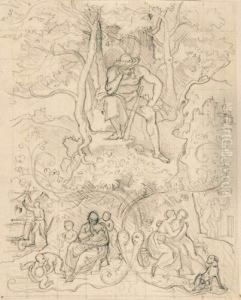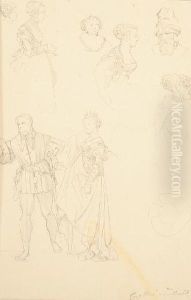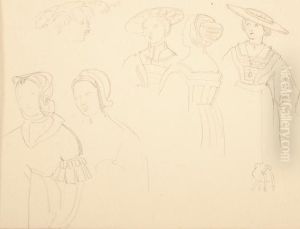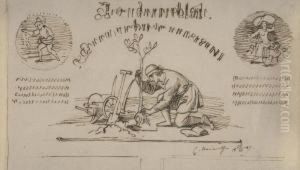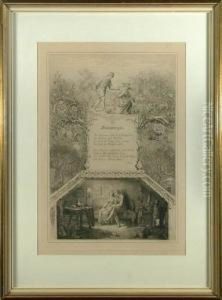Eugen Napoleon Neureuther Paintings
Eugen Napoleon Neureuther was a notable German artist and etcher born on January 13, 1806, in Munich, Bavaria. He was the son of the court singer Crescentia Neureuther and grew up in an environment that was conducive to developing an appreciation for the arts from a young age. Neureuther's early interest in drawing and painting led him to pursue formal training. He studied at the Royal Academy of Fine Arts in Munich, where he honed his skills in various artistic disciplines.
Neureuther's work was heavily influenced by the German Romantic movement, a period known for its emphasis on emotion, nature, and national folklore. He became particularly renowned for his etchings and illustrations that often depicted scenes from literature and folklore, characterized by their intricate details and whimsical charm.
In 1829, he published a series of etchings titled 'Randzeichnungen zu Goethe’s Balladen und Romanzen' (Marginal Drawings to Goethe’s Ballads and Romances), which gained him widespread acclaim. These works illustrated the poems and ballads of Johann Wolfgang von Goethe, showcasing Neureuther's ability to capture the essence of Romantic literature through visual art.
Throughout his career, Neureuther continued to collaborate with literary figures and produced illustrations for works by other prominent authors, including Ludwig Uhland and Clemens Brentano. His etchings were celebrated for their narrative quality and the way in which they complemented the texts they accompanied.
In addition to his etchings, Neureuther was also involved in architectural and decorative arts. He took part in designing frescoes for various buildings, such as the Ludwigskirche in Munich. His contributions to the applied arts reflected the Biedermeier style, prevalent in the German-speaking countries during the first half of the 19th century.
Neureuther's legacy includes not only his body of work but also his influence on later generations of artists. He was a professor at the Munich Academy and shared his expertise with many young artists, helping to shape the future of German art.
Eugen Napoleon Neureuther passed away on March 23, 1882, in Munich. His artistic contributions are recognized as part of the rich tapestry of German Romanticism, and his etchings and illustrations continue to be admired for their storytelling and aesthetic beauty.
